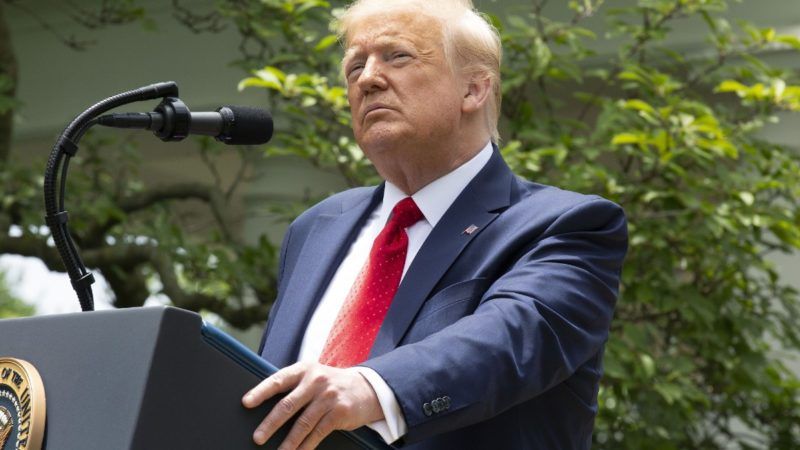Conservatives Embrace Presidents Making Laws on "Sticky Notes"
Donald Trump has rewritten much of U.S. immigration law from the Oval Office, without congressional oversight or public debate.

The Supreme Court ruled Thursday that the Trump administration violated the law when it attempted to rescind the Obama administration's Deferred Action for Childhood Arrivals (DACA) program. Acting Deputy Homeland Security Secretary Ken Cuccinelli slammed the decision as a "double standard," asking: "Does anyone think they'd let @realDonaldTrump just make up 'laws' on sticky notes like @BarackObama?"
The answer is clear: Yes, they would. Indeed, just two days after Cuccinelli leveled this criticism, President Donald Trump announced that he will unilaterally impose new restrictions to block foreign workers from entering the country, despite decades-old laws allowing companies to hire foreign workers in certain circumstances.
Trump told Fox News Saturday that the restrictions would be "very tight" with "very little exclusion" for "a period of time." The president may not be writing the law on sticky notes in his office, but he's definitely making new laws from his Oval Office just the same—with zero congressional oversight and zero public debate and thrusting it on Americans with barely a day's notice.
This latest executive sticky note isn't unique. Trump has essentially rewritten all of U.S. immigration law to his liking. He is just two months removed from a ban on immigrant family members of Americans—a move he had proposed in legislation that failed in Congress. Like his latest restriction, this is supposedly going to "protect jobs."
Even before COVID-19, the president blocked asylum seekers at the southern border and sharply restricted refugees. He rewrote high-skilled immigration procedures in ways that courts found violated the law. And who could forget his late-night ban on immigrants from a grab bag of majority-Muslim countries, issued just days into his presidency, and the chaos it unleashed at America's airports?
That "Muslim ban" was a proving ground for all that followed. The Ninth Circuit Court of Appeals found in that case that "immigration, even for the President, is not a one-person show" and that Congress did not—and could not—have delegated the authority to the president to exclude anyone he wants. Yet the Supreme Court disagreed, and now, contrary to Cuccinelli, immigration is a one-man show.
A single man's vision laid out in secret is a far cry from the founders' vision of two branches of Congress robustly debating and carefully crafting laws in public.
Even the Supreme Court's latest ruling doesn't limit the president's authority to terminate DACA. It just requires him to follow the procedures laid out in the law—namely, that he fully explains why he wants to do it. That's about as low a bar for action as there can be.
But what about President Barack Obama? Did the Supreme Court let him "make up" immigration law too? No. DACA was never challenged in court under Obama, but a similar program was. When the Fifth Circuit Court of Appeals found that the program was illegal, an evenly divided Supreme Court affirmed that decision and the president backed off, immediately announcing that he would follow the ruling. We've seen no similar announcement from Cuccinelli or Trump about the Supreme Court's DACA ruling.
The president's latest action also puts to bed another common trope among immigration opponents: that they just want the laws on the books enforced. Turns out that many of them would prefer that laws allowing immigrants to come here not be enforced. Apparently, "enforcing the law" is fine only as long as it involves removing people from America.
